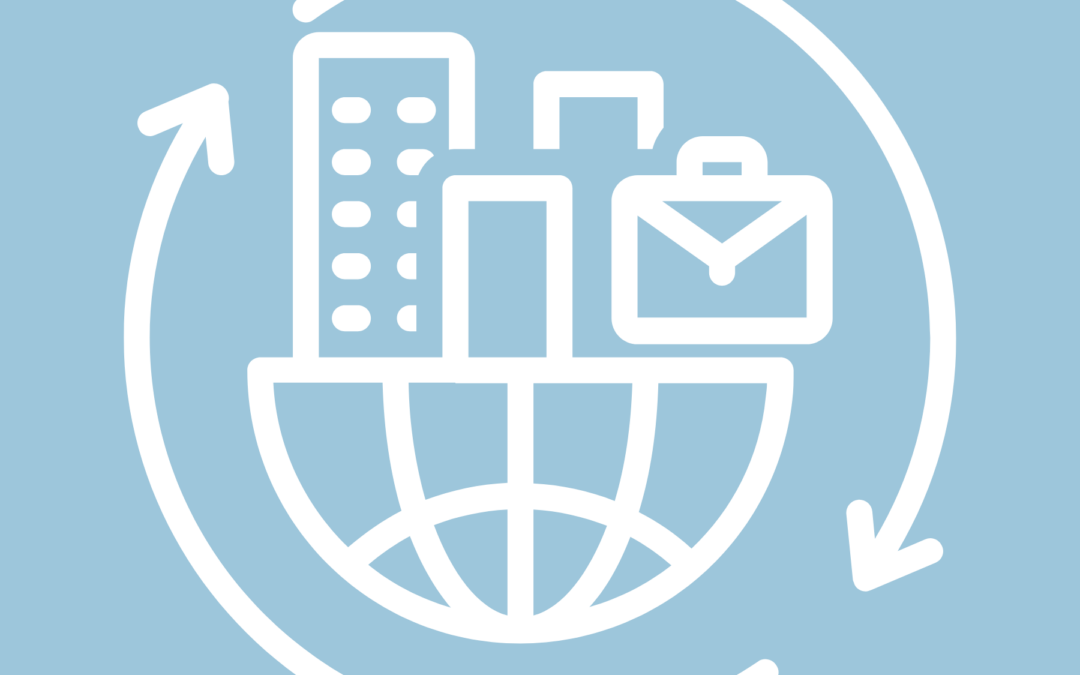
Why Business Leaders Often Struggle Leading Nonprofits
Business leaders can be like superhero celebrities in their corporate kingdoms. They stride through glass-walled boardrooms, armed with confidence sharper than their Italian leather shoes. Deals are made, targets are crushed, and corporate subordinates nod fervently at every word. Then, often out of a genuine desire to give back or champion a cause, these corporate dynamos step into the nonprofit realm. Yet instead of wowing the crowd with their usual leadership prowess, they sometimes look more like a dancing flamingo in a chicken coop—colorful, but awkwardly out of sync. Why does this happen so often? Let’s explore the surprising challenges that make even the most successful corporate leaders stumble when trying to lead well in nonprofit organizations.
The Overconfidence Trap
At the top of the list is overconfidence. When a hotshot CEO sweeps into a mission-driven environment, they often come armed with an assumption: “I’ve conquered the corporate world, so saving sea turtles or feeding the homeless should be a cinch.” They imagine the nonprofit staff will gawk in awe at their strategic wizardry. The problem? Nonprofits don’t usually need “fixing” in the corporate sense. Their complexities revolve around intangible passions—motivation, mission, and volunteer commitment—rather than just budgets and brand expansions. What works in the land of quarterly profits doesn’t necessarily translate to a realm powered by compassion. It’s like trying to use a sledgehammer to gently carve a delicate sculpture. Sure, it’s a powerful tool, but it’s more likely to create cracks than to craft a masterpiece.
The Ego Elephant in the Room
In the corporate world, a healthy dose of ego can help leaders succeed. You need to be sure of your decisions, exude confidence, and guide the team decisively. However, in a nonprofit setting, that same ego can feel like a giant elephant parked in the middle of a cozy living room. Staff and volunteers aren’t generally there to hail the brilliance of one visionary leader; they’re united by a cause, a mission, or a personal calling. If you waltz in expecting reverence for your sterling résumé and top-floor corner office background, prepare for polite smiles and silent blinking. Respect here is earned differently—through humility, empathy, and genuinely rolling up your sleeves to serve the mission rather than showcasing your corporate stardom.
The Myth of Corporate Fairy Dust
There’s a persistent myth that “corporate fairy dust” can be sprinkled onto any nonprofit, magically transforming it into a streamlined, hyper-efficient machine. After all, in the business world, leaders solve problems with strategy, data-driven approaches, and performance metrics. Why wouldn’t that be the cure-all for nonprofits? Because nonprofits revolve around humans—messy, emotional, enthusiastic, overworked, devoted humans—who often face resource constraints unlike anything in the corporate sphere. You can’t pivot your way out of a shortfall in volunteer availability or assemble a brand-new marketing team on a whim. The mission might be about saving baby sea turtles or preserving ancient manuscripts—both of which can’t be fully captured in a tidy spreadsheet. Sprinkle all the corporate fairy dust you want; if the people involved aren’t on board or if the cause isn’t flexible to a “quick fix,” nothing will stick.
The Volunteer Vortex
Volunteers are the heartbeat of many nonprofits. They show up—often unpaid, sometimes untrained—and pour their time and talent into a cause they deeply care about. Managing this group can feel like herding feral cats for a corporate leader used to having an HR department. There’s no handy contract threatening to withhold pay for lackluster performance. Instead, you’re reliant on people’s passion. If a volunteer gets frustrated because you served stale bagels at the breakfast fundraiser, they can vanish without notice. Then you’re left scrounging for replacements at the last minute. Winning over these volunteers requires a gentle touch, abundant gratitude, and a willingness to adapt. In short, you have to learn the subtle art of leading people who aren’t there for the paycheck—they’re there for the mission, which means your motivational style needs a serious tune-up.
Board Meetings on Another Planet
In a typical corporate board meeting, everyone might come with spreadsheets, analytics, and neatly prepared talking points about hitting key performance indicators. Decisions are often guided by clear data and bottom-line impacts. In a nonprofit board meeting, you might encounter discussions that are driven by personal stories, heartfelt anecdotes, or intangible concepts like “vision alignment.” You want to see a chart? Instead, you’ll get the saga of Ms. Edna, an 89-year-old beneficiary who crocheted hats for everyone in gratitude. It’s not that data is irrelevant—far from it—but it often takes a backseat to the passion and emotion that shape decisions in nonprofits. Leaders unaccustomed to these emotional conversations can be left feeling they’re in an alternate universe, one where empathy often trumps efficiency in the decision-making process.
The ROI Riddle
Ah, return on investment—one of the favorite metrics for any corporate leader. In business, ROI is tied neatly to profits or cost savings. In a nonprofit, ROI might be measured in intangible glows, improved life outcomes, or a sense of community uplift. Sure, you can track how many meals were served or how many educational sessions were held, but quantifying how much “hope” was restored or how many children now have a brighter future is trickier. This intangible side can baffle leaders used to slicing everything into digestible, numerical data points. You might find yourself staring at a spreadsheet with confusion, thinking, “Where’s the line item for intangible glow?” The good news is, once you embrace this broader perspective, you’ll discover a deeper sense of reward than any quarterly profit margin could ever provide.
From Metrics to Mission
Although nonprofits do use numbers—don’t believe the hype that they’re allergic to spreadsheets—the core driver is always mission. That mission might be eradicating a disease, rescuing stray puppies, or teaching underprivileged children to code. Numbers serve to confirm or refine strategies, rather than become the ultimate endgame. For corporate leaders accustomed to revolving entire worlds around metrics, that can be disorienting. Suddenly, it’s not all about how many zeros are in the bank account; it’s about whether the impact is resonating in the community. Balancing your love for metrics with a genuine focus on the mission itself is like learning a new dance. You already know the basic moves, but the music’s different here—slower, more heartfelt, and often accompanied by a sing-along from dedicated volunteers.
The People Puzzle
Meanwhile, the staff in many nonprofits aren’t motivated by stock options or enormous bonuses. They’re guided by a sense of purpose, a belief in change, or a personal connection to the cause. These employees might work longer hours for less pay simply because the mission speaks to their hearts. Leading them requires a delicate mix of empathy, shared vision, and a supportive environment where burnout is addressed before it becomes an inferno. A blunt, profit-driven directive might not land well with someone who’s barely sleeping because they’re packing emergency food boxes all night. These staff members need to feel seen and valued not for boosting revenue, but for being ambassadors of real, human-centered impact. Corporate leaders who make the leap successfully are the ones who invest as much in people’s well-being as they do in hitting strategic milestones.
Heartstrings vs. Purse Strings
At the end of the day, nonprofits still need a healthy financial backbone. Bills have to be paid, initiatives need funding, and an empty bank account can stall even the worthiest of causes. Balancing the emotional drive of a nonprofit with the financial realities of sustaining it is a high-wire act. If you push too hard on the “money, money, money” side, you risk alienating supporters who are there for altruistic reasons. Yet if you ignore the purse strings in favor of a purely heartstring-led approach, you could end up with a brilliant mission that’s tragically underfunded. The real art of leadership in nonprofits is blending empathy and fiscal savvy in a way that preserves the organization’s soul without sinking its financial ship.
So what now? Embracing the Awkward (and the Rewards)
So why do so many corporate leaders stumble when they enter the nonprofit space? They must adapt to a leadership style that relies less on authority and more on genuine collaboration, empathy, and relationship-building. Their standard tools—spreadsheets, profit-and-loss analyses, direct chains of command—remain valuable, but they have to be recalibrated. Nonprofits inhabit a world where success often hinges on personal connection, storytelling, community trust, and unwavering belief in a cause. It’s a place where intangible outcomes might matter even more than cold, hard data.
The good news is that once you embrace the awkwardness—once you let go of the need to be the all-knowing corporate savant—you’ll discover a realm of leadership that can fill your heart in ways no quarterly earnings report ever could. You’ll see volunteers come alive with passion, staff members transform communities with love and determination, and beneficiaries find hope. Yes, you may yearn for the comfort of ROI graphs and efficiency charts, but sometimes a crocheted doily from Ms. Edna (a grateful program participant) means you’ve done something truly immeasurable.
Leading effectively in a nonprofit calls for humility, emotional intelligence, and a willingness to dance to a different beat. Accept that you won’t have all the answers, or instant solutions, and that sometimes your best move is simply to listen. Do that, and not only will you avoid stumbling like a flamingo in a chicken coop—you might just soar in the nonprofit jungle and discover a new dimension of leadership success.

